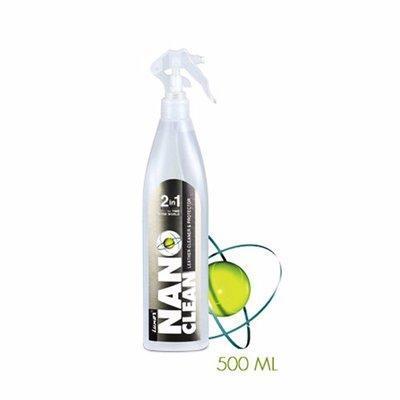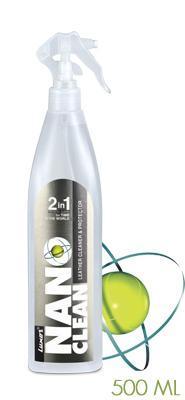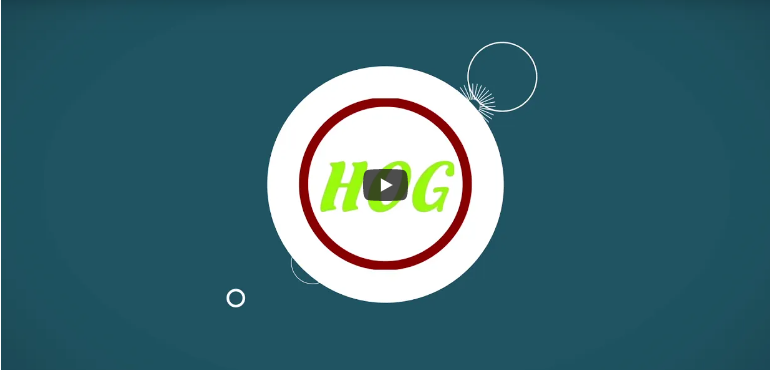Mental detoxification refers to the process of clearing your mind of clutter and distractions that hinder your mental clarity and overall well-being. Just as physical detoxing removes toxins from your body, a mental detox allows you to eliminate negative thoughts, stressors, and overwhelming emotions. This practice is essential in today’s fast-paced world, where information overload can lead to anxiety and decreased productivity.
The importance of mental detox cannot be overstated. It helps you regain focus, enhance creativity, and improve emotional resilience. By understanding what mental detox means, you can empower yourself to take the necessary steps toward achieving a clearer mind. You’ll find that this clarity not only improves your mental health but positively impacts your relationships, work performance, and overall quality of life.
In essence, a mental detox is about creating space in your mind for positive thoughts and experiences. By consciously deciding to detox your mind, you’re taking a significant step toward holistic wellness. This journey allows you to reconnect with your inner self and cultivate a lifestyle that promotes mental clarity and emotional stability.
The Mind-Body Connection: How Mental Clutter Affects Overall Wellness
The mind-body connection plays a crucial role in your overall wellness. When your mind is cluttered with stress, anxiety, and negative thoughts, this imbalance can manifest physically. You may experience symptoms such as fatigue, headaches, or even gastrointestinal issues, acne breakout and acne scars. Understanding this connection is vital for recognizing how mental clutter can undermine your health.
Mental clutter can create a cycle of stress that affects your physical body. For instance, when you feel overwhelmed, your body releases stress hormones like cortisol, which can lead to various health problems over time. This relationship means that clearing your mind can improve not only your mental state but also your physical health. By prioritizing mental detox, you can break this cycle and enhance your overall well-being.
To foster a healthy mind-body connection, it's essential to recognize the signs of mental clutter. Practicing self-awareness can help you identify when you're overwhelmed and need to detox. Techniques such as mindfulness, deep breathing, regular exercise and physical therapy can aid in this process. When you begin to declutter your mind, you’ll notice positive changes in both your mental and physical states.
Signs You Need a Mental Detox
Recognizing the signs that you need a mental detox is the first step toward achieving clarity and wellness. Here are some common indicators:
1. Overwhelming Anxiety: If you often feel anxious or stressed without a clear reason, it may be time for a mental detox.
2. Difficulty Concentrating: Struggling to focus on tasks or feeling mentally fatigued can signal that your brain is overloaded.
3. Negative Thought Patterns: Persistent negative thoughts or feelings of self-doubt can indicate a cluttered mind.
If you resonate with any of these signs, it’s a clear indication that your mental space requires some attention. Ignoring these signs can lead to further mental health issues, such as burnout or depression. This is especially important for individuals undergoing infertility treatment, as the emotional and psychological toll can be significant. By acknowledging your need for a mental detox, you are taking the first step toward regaining control over your thoughts and emotions.
Another vital sign is a sense of disconnection from your surroundings or relationships. If you find yourself withdrawing from social interactions or feeling detached from your loved ones, it may be time to assess your mental state. Engaging in a mental detox can help you reconnect with what truly matters in your life.
Lastly, if you often feel fatigued despite getting enough sleep, it may be due to mental clutter. A clear mind should contribute to restful sleep and rejuvenation. If you find yourself waking up feeling drained, consider prioritizing a mental detox to restore your energy levels.
Digital Detox: Unplugging for Clarity and Focus
In today’s digital age, a digital detox can be one of the most effective strategies for achieving mental clarity. With constant notifications and the pressure to stay connected, our minds can easily become overwhelmed. Unplugging from digital devices for a set period can help you reset and refocus.
Start by setting boundaries around your digital usage. You can designate specific times for checking emails and social media, ensuring that your day is not consumed by screens. Additionally, consider a full day or even a weekend away from all digital devices. This break allows you to engage with the world around you, fostering deeper connections and enhancing your mental clarity.
During your digital detox, explore alternative activities that can enrich your mental state. Spend time reading a physical book, engaging in a hobby, or connecting with nature. By immersing yourself in these experiences, you’ll create space for reflection and rejuvenation. You may find that the absence of digital distractions leads to newfound clarity and creativity.
Moreover, after your digital detox, reflect on how you felt during this time. Did you notice decreased anxiety levels? Were you able to concentrate better? This reflection can help you understand the impact of digital clutter on your mental well-being and encourage you to incorporate regular digital detoxes into your routine.
Mindfulness Meditation: A Powerful Tool for Mental Cleansing
Mindfulness meditation is a highly effective practice for mental detoxification. This technique encourages you to focus on the present moment, allowing you to observe your thoughts without judgment. By practicing mindfulness, you can clear away the mental clutter that often overwhelms you.
To begin your mindfulness meditation practice, find a quiet space where you won’t be disturbed. Sit comfortably, close your eyes, and take a few deep breaths. Focus on your breath, observing each inhalation and exhalation. As thoughts arise, acknowledge them but gently guide your attention back to your breathing. This practice helps you cultivate awareness and reduces the influence of negative thoughts.
Regular mindfulness meditation can have numerous benefits for your mental clarity. Studies have shown that mindfulness can reduce stress, improve emotional regulation, and enhance cognitive function. By incorporating this practice into your daily routine, even if just for a few minutes, you can create a powerful tool for mental cleansing.
Additionally, consider integrating mindfulness into your everyday activities. You can practice mindfulness while eating, walking, or even during conversations. The goal is to remain present and fully engaged in the moment, which can significantly improve your overall mental state.
The Role of Physical Exercise in Mental Detoxification
Physical exercise is not only beneficial for your body but also plays a crucial role in mental detoxification. Engaging in regular physical activity helps to release endorphins, the brain’s natural mood lifters, which can combat feelings of stress and anxiety. By prioritizing exercise, you’re contributing to both your physical and mental well-being.
Choose an exercise routine that you enjoy, whether it's running, yoga, dancing, or swimming. The key is to engage in activities that make you feel good while also providing an outlet for stress. Aim for at least 30 minutes of moderate exercise most days of the week. This consistency will help you build a habit that supports mental clarity and emotional stability.
Moreover, exercise can serve as a form of moving meditation. When you engage in physical activity, you often enter a state of flow, where your mind quiets and you become fully immersed in the moment. This state can be incredibly therapeutic, allowing you to release pent-up thoughts and emotions.
Lastly, consider incorporating outdoor activities into your exercise routine. Nature has a calming effect on the mind, and being outside can enhance the benefits of your workout. Whether it’s hiking, biking, or simply walking in a park, spending time in nature can significantly aid your mental detoxification process.
Nutrition for Mental Clarity: Foods That Boost Cognitive Function
What you eat can have a profound impact on your mental clarity. Nutrition plays a key role in brain health, and certain foods are known to enhance cognitive function. By incorporating these foods into your diet, you can support your mental detox journey.
Here’s a list of foods that can boost your cognitive function:
• Fatty Fish: Rich in omega-3 fatty acids, which are essential for brain health.
• Berries: Packed with antioxidants that can improve memory and cognitive function.
• Leafy Greens: High in vitamins and minerals that support overall brain health.
• Nuts and Seeds: Great sources of healthy fats and proteins that nourish the brain.
• Whole Grains: Provide a steady supply of energy to the brain, enhancing focus and concentration.
In addition to these foods, staying hydrated is crucial for mental clarity. Dehydration can lead to fatigue and diminished cognitive function. Aim to drink enough water throughout the day and consider incorporating herbal teas, which can also offer additional calming benefits.
You might also want to minimize processed foods, sugar, and excessive caffeine in your diet. These can lead to energy crashes and increased anxiety levels. Instead, focus on whole, nutrient-dense foods that support your brain and overall well-being.
Journaling: Dumping Mental Clutter onto Paper
Journaling is a powerful practice that allows you to dump mental clutter onto paper, providing clarity and emotional release. By writing down your thoughts, feelings, and experiences, you create a safe space for self-expression. This act can significantly reduce anxiety and help you process complex emotions.
To start journaling, set aside a few minutes each day to write. You don’t need to follow strict guidelines; simply let your thoughts flow freely. You might choose to write about your day, your feelings, or any recurring thoughts that weigh you down. Over time, you’ll find that journaling becomes a therapeutic outlet for your mental clutter.
Consider using prompts to guide your journaling practice. Here are a few ideas:
1. What are three things I am grateful for today?
2. What challenges did I face this week, and how did I overcome them?
3. How am I feeling right now, and why?
These prompts can help you gain insight into your emotions and thoughts, further supporting your mental detox. By regularly engaging in this practice, you’ll develop a greater awareness of your mental state and be better equipped to manage stressors.
Additionally, you might find that journaling helps you track your progress in other detoxification practices. For example, you can write about your experiences during a digital detox or how mindfulness meditation has impacted your mental clarity. This reflection not only enhances the detox process but also fosters personal growth.
The Power of Nature: How Outdoor Activities Aid Mental Detox
Spending time in nature is a powerful way to aid mental detoxification. The natural environment has a calming effect on the mind and can significantly reduce stress levels. Engaging in outdoor activities allows you to disconnect from your daily routine and reconnect with yourself.
Consider incorporating activities like hiking, gardening, or simply walking in a park into your routine. Research has shown that spending time outdoors can improve mood, enhance cognitive function, and increase feelings of well-being. Nature stimulates the senses and provides a refreshing change from the noise of daily life.
Additionally, outdoor activities encourage physical exercise, which, as mentioned earlier, plays a crucial role in mental detoxification. Whether it’s a brisk walk or a more intense hike, engaging with nature boosts your endorphins, promoting a sense of happiness and mental clarity.
To maximize the benefits of nature, try to practice mindfulness while outdoors. Pay attention to the sights, sounds, and smells around you. This practice can help you stay present and fully engage with your environment, further enhancing your mental detox experience.
Creating a Supportive Environment for Mental Wellness
A supportive environment is essential for maintaining mental wellness. Your surroundings can significantly impact your mental state, so it’s crucial to create a space that fosters calmness and positivity. Consider decluttering your physical space, as a tidy environment can lead to a clearer mind.
Start by assessing your surroundings. Remove items that no longer serve you and organize your space to promote a sense of peace. Incorporate elements that bring you joy, such as plants, art, or personal mementos. A well-organized and aesthetically pleasing environment can enhance your mood and encourage mental clarity.
Additionally, consider the people you surround yourself with. Positive social connections are vital for mental wellness. Engage with individuals who uplift you, support your goals, and encourage open communication. Building a strong support system can provide you with the emotional resources needed during challenging times.
Finally, establish boundaries that protect your mental space. Communicate your needs to those around you and prioritize self-care. Whether it’s setting aside time for relaxation or saying no to commitments that drain your energy, creating a supportive environment involves being intentional about your mental health.
Sleep Hygiene: The Often Overlooked Aspect of Mental Detox
Quality sleep is a critical component of mental detoxification that is often overlooked. Poor sleep can lead to increased stress, decreased cognitive function, and emotional instability. Prioritizing sleep hygiene can significantly improve your mental clarity and overall well-being.
To enhance your sleep quality, establish a consistent sleep schedule. Aim to go to bed and wake up at the same time every day, even on weekends. This routine helps regulate your body’s internal clock and promotes deeper, more restorative sleep. Additionally, create a calming bedtime routine that signals to your body that it’s time to wind down.
Your sleep environment also plays a crucial role in sleep hygiene. Ensure that your bedroom is dark, quiet, and cool. Consider using blackout curtains, earplugs, or white noise machines to create an optimal sleeping environment. A comfortable mattress and pillow are also essential for a good night’s sleep.
Lastly, be mindful of your pre-sleep activities. Limit exposure to screens for at least an hour before bed, as the blue light emitted can interfere with melatonin production. Instead, engage in relaxing activities such as reading, meditation, or gentle stretching to prepare your mind and body for sleep.
Stress Management Techniques for a Clearer Mind
Stress management techniques are vital for achieving mental clarity and overall wellness. Stress can quickly lead to mental clutter and overwhelm, making it essential to have effective strategies in place. By adopting various stress-reduction techniques, you can create a clearer, more focused mind.
Here are a few effective stress management techniques:
1. Deep Breathing: Practice deep breathing exercises to calm your nervous system and reduce anxiety. Inhale deeply through your nose, hold for a few seconds, and exhale slowly through your mouth.
2. Progressive Muscle Relaxation: This technique involves tensing and then relaxing each muscle group in your body, helping to alleviate physical tension associated with stress.
3. Time Management: Prioritize your tasks and break them down into manageable steps. This approach can help reduce feelings of overwhelm and improve productivity.
Incorporating these techniques into your daily routine can significantly enhance your mental clarity. For instance, consider setting aside time each day for deep breathing or progressive muscle relaxation. Additionally, use time management strategies to create a balanced schedule that allows for work, relaxation, and self-care.
Moreover, don’t hesitate to seek support from friends, family, or mental health professionals when needed. Talking about your stressors can provide relief and help you gain perspective on your challenges. Building a strong support network is an essential element of effective stress management.
The Benefits of Social Connections in Mental Detoxification
Social connections play a crucial role in mental detoxification. Engaging with others can provide emotional support, enhance feelings of belonging, and promote mental clarity. By nurturing your relationships, you can create a protective buffer against stress and mental clutter.
One of the key benefits of social connections is the opportunity for open communication. Sharing your thoughts and feelings with trusted friends or family members allows you to process emotions and gain insight into your experiences. This exchange can lighten the mental load and provide clarity.
Moreover, social interactions can serve as a source of joy and laughter, both of which are essential for mental well-being. Engaging in positive social activities, such as group outings, shared hobbies, or even simple conversations, fosters a sense of connection and belonging. These experiences can counteract feelings of isolation and promote mental detoxification.
To strengthen your social connections, make a conscious effort to reach out to friends and loved ones regularly. Schedule catch-up calls or plan activities together. Building and maintaining these relationships is an essential aspect of your mental wellness journey.
Incorporating Holistic Practices: Yoga, Tai Chi, and Qigong
Holistic practices such as yoga, Tai Chi, and Qigong offer powerful tools for mental detoxification. These practices combine physical movement, breath control, and mindfulness, making them effective for clearing mental clutter and promoting overall well-being.
Yoga is a well-known practice that enhances flexibility, strength, and mental clarity. Through various poses and breathing exercises, you can release tension and cultivate a sense of calm. Many people find that incorporating yoga into their routine helps them manage stress and improve focus.
Tai Chi is a gentle martial art that emphasizes slow, controlled movements and deep breathing. This practice promotes relaxation and mindfulness while enhancing physical balance and coordination. Regular practice can help reduce feelings of stress and anxiety, making it an excellent addition to your mental detox regimen.
Qigong is another holistic practice that combines movement, meditation, and breath work. This ancient Chinese practice focuses on cultivating and balancing your life energy, or “Qi.” Engaging in Qigong can help you release mental clutter, reduce stress, and promote a sense of inner peace.
To incorporate these practices into your life, consider joining a local class or following online tutorials. Even dedicating a few minutes each day to yoga, Tai Chi, or Qigong can provide significant benefits for your mental clarity and overall wellness.
Maintaining Mental Clarity: Daily Habits for Long-Term Wellness
Achieving mental clarity is a continuous journey that requires consistent effort. By implementing daily habits that promote mental wellness, you can maintain clarity and emotional stability over the long term. Here are some effective habits to consider incorporating into your routine:
1. Prioritize Self-Care: Set aside time each day for self-care activities that nourish your mind and body. This can include relaxation, hobbies, or simply taking a break from your responsibilities.
2. Stay Organized: Keep your physical and digital spaces organized to minimize clutter and distractions. A tidy environment promotes mental clarity and focus.
3. Practice Gratitude: Develop a gratitude practice by reflecting on the positive aspects of your life each day. This can shift your mindset and reduce feelings of negativity.
Additionally, consider staying connected with supportive individuals who uplift and motivate you. Regularly engaging in meaningful conversations or activities with friends and family can reinforce your mental wellness journey.
Finally, be patient with yourself. Mental detoxification is a process that takes time and commitment. By cultivating positive habits and remaining open to growth, you’ll be better equipped to maintain mental clarity and holistic wellness.
Author: Laura Watson

I am an amateur astronomer, a writer, and an artist. I love reading and I believe that learning keeps you alive. I am writing blogs for several websites and I enjoy doing it.







